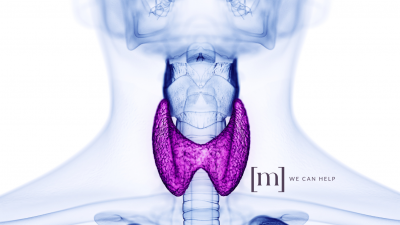Thyroid issues are becoming increasingly common, particularly due to lifestyle and environmental factors. One of the most serious thyroid conditions is a thyroid storm, also known as an acute exacerbation of hyperthyroidism.
This can cause a spike in thyroid hormone levels, leading to a variety of serious and potentially deadly symptoms that require immediate medical attention.
Hyperthyroidism and Thyroid Storms
The thyroid is a small hormone-producing gland in the neck that helps control many bodily functions. Hyperthyroidism is when it produces too much of the hormone thyroxine. When this condition is left untreated or suddenly worsens, it can lead to a life-threatening episode known as a thyroid storm.
A thyroid storm is an acute event that occurs when there is an extreme increase in levels of thyroid hormones, typically brought on by stress or trauma.
Symptoms can vary but often include fever, rapid heartbeat, vomiting and diarrhea, confusion and disorientation, elevated blood pressure, and even seizures. Thyroid storms can cause organ failure or permanent organ damage if left untreated.
Risk factors for developing a thyroid storm include untreated hyperthyroidism, exposure to high levels of radiation or certain drugs such as lithium or amiodarone, infection, and preexisting heart or liver disease.
Diagnosing and Treating a Thyroid Storm
Diagnosis for a thyroid storm typically requires blood tests to measure levels of thyroid hormones, which can be followed up with imaging tests such as ultrasound and CT scans if necessary.
Treatment for the condition usually requires hospitalization for several days and may involve medications to reduce the activity of the thyroid gland itself. You might also need other drugs to manage other symptoms, like a fever, pain, or nausea.
What to Do If You’re at Risk of Having a Thyroid Storm
To prevent a thyroid storm from occurring, it's important to recognize the signs of hyperthyroidism early on and seek timely medical attention.
Regular self-monitoring at home using a thermometer or pulse oximeter and tracking changes in your diet can help you identify any shifts in your health that require further testing or treatment by your medical provider.
Additionally, setting aside time each day for regular exercise can help keep your hormones balanced and boost overall physical fitness. You also need to take any medication prescribed to you to treat your hyperthyroidism exactly when and as prescribed. In many cases, this includes hormone replacement therapy.
To learn more about hormone replacement therapy and to see if it’s right for you, schedule an appointment today.

